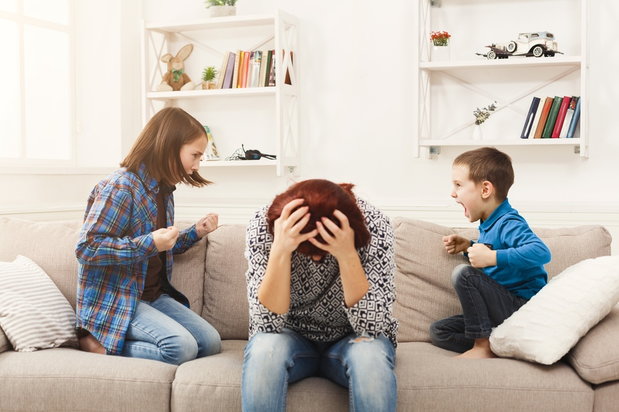Many individuals, in recovery or not, are keenly aware of familial difficulties. In fact, most people have a bittersweet experience with the holiday season for this very reason. In other words, family drama is not uncommon to the majority of the human race.
However, there’s a vast difference between seasonal dramatics and daily dysfunction. Some families are truly toxic, and those subjected to them are likely to become sick.
Is Your Family Toxic?
There are many ways in which a family can be toxic. Though a few dysfunctional or unhealthy behaviors may appear from time to time in one or more individuals within any given family, toxic families display dysfunction on a daily basis. As such, it is important to note a pattern of behavior, rather than simply a rare or occasional occurrence.
Here are 11 signs of a toxic family for you to consider when reflecting on consistent behavioral patterns within your own bloodline.
1. They are controlling.
Families who seek to control your adult life by way of meddling in your personal affairs, lifestyle choices and life-shaping decisions are certainly considered controlling. However, families who use money or reward to control are equally as guilty. Though there may be a certain level of expectation that comes with a parent granting a loan to their adult child, personal control should not be part of it. If the latter is intended, it’s not a loan or a gift—it’s bribery.
2. They are always nagging you.
Families who constantly nag you about your adult responsibilities and decisions, never allowing you the space to make your own choices, mistakes or explore your own path are potentially stunting you emotionally and developmentally. This stunting occurs after years of being nagged, rather than simply being trusted with adult responsibility and learning via personal mistakes and consequences. The latter creates character. Conversely, nagging breeds learned helplessness.
3. They are quick to blame.
Accountability is about directly stating boundaries and allowing natural consequences to occur when those boundaries are crossed. Blaming, on the other hand, is a deadly habit that is almost always accompanied by victimization. Families that scapegoat or blame each other for their feelings or experiences are not taking accountability for their own roles in the situation and is, lastly, a setup for codependency.
4. They punish instead of discipline.
Contrary to what some might believe, discipline and punishment are not one in the same. Discipline is about training and teaching. Punishment is merely enforcing a penalty. As such, when you have a family that practices punishment even throughout your adult life, it typically presents by way of emotional or psychological punishment. For instance, if you do something perceived as undesirable by your family, they may not speak to you for days or weeks at a time. That is emotional/psychological punishment, and it is toxic.
5. They have threatening tactics.
There are indeed families that use threat as a method of control. For example, some families threaten to disown their children—adult or otherwise—if they make certain life choices. Though this may be common, it should not be acceptable and is certainly not healthy. Families who threaten to emotionally, psychologically, spiritually or physically harm you in any way are toxic. Period.
6. They distort the truth.
Dysfunctional families often distort intentions, experiences and recalled memories to avoid accountability. There are many ways in which a family can distort you, who you are, what you do or want to do, as well as your life experiences with and without them. Regardless of the matter in which they do it, if they do it, they’re toxic.
7. They are dismissive.
Families who fit the toxic criteria will likely dismiss the criteria, itself, as well as you and anyone who brings it to their attention. Along with that, they typically dismiss your feelings, thoughts, opinions and experiences. Again, this is typically an effort to avoid accountability. But, regardless of their reasoning, dismissing is a toxic behavior.
8. They constantly criticize.
Toxic families are generally very critical. Much of that is a result of projection. In other words, the misery and negative self-talk experienced by each person is projected onto the next.
9. They are always the victim.
Families who constantly play the victim card lack accountability. Moreover, they’re typically self-sabotaging by choosing the victim role, rather than practicing prevention or being proactive. Where empowering is a sign of a healthy family, victimizing is red flag for a toxic one.
10. They are unavailable.
Dysfunctional families are almost always unavailable in one way or another. Whether they are physically present is irrelevant. Emotional availability is key to a healthy family. If someone is emotionally void or mentally checked out, they are unavailable to everyone around them. When a family is unavailable, whether merely maintaining superficial relationships with each other or completely absent, they are toxic.
11. They are untreated.
Active abuse of any kind—physical, emotional, psychological or sexual—within the family, as well as untreated addiction, codependency, depression, other mental illness and active issues related to being an adult child of an addict or alcoholic clearly qualify a family as toxic.
What Can You Do?
Of course, knowing is only half the battle. There are certainly steps to take to protect yourself and prevent or stop the toxic cycle from continuing. But, once you become aware your family is indeed toxic—knowledge you likely already had but simply now validated—the first and most important step is to seek help for you. Whether that assistance comes in the form of counseling, self-help books, spiritual guidance or life coaching, it is necessary to find someone objective to help you sort out any resulting personal issues and take further steps in your life to prevent further damage.
Remember, toxic families are no different than any other toxic element. They can kill you—who you were, are or the person you have potential to be.








